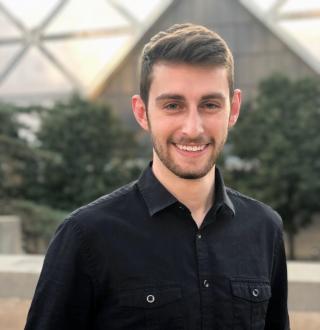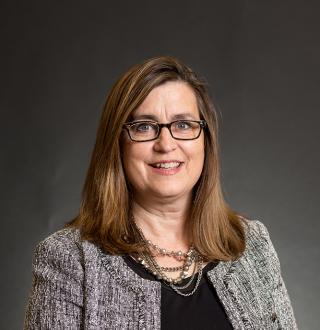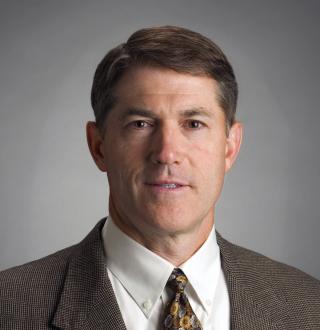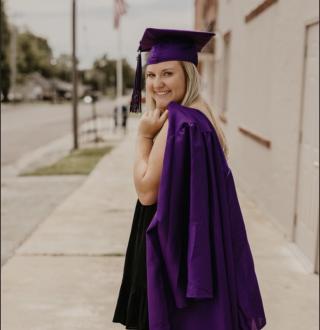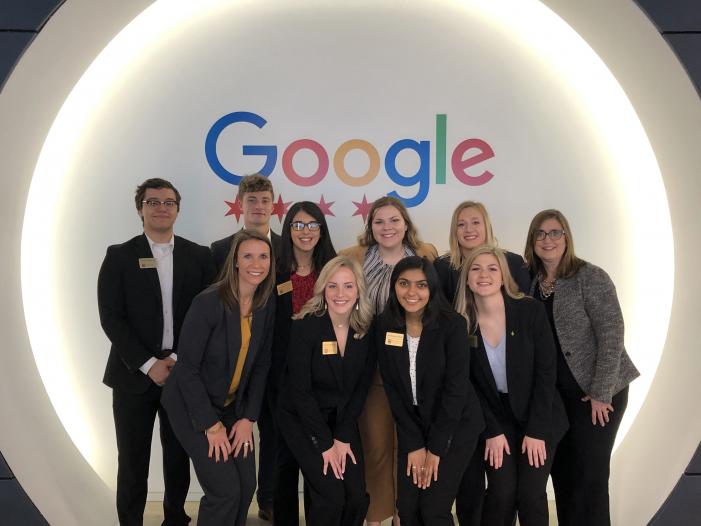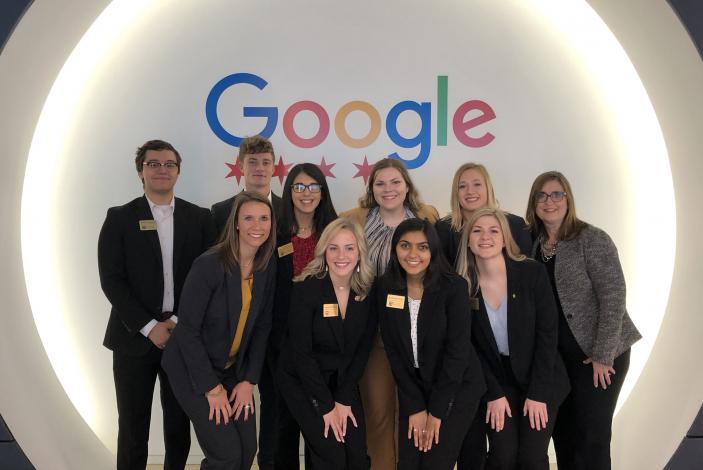
From the heart: Academy’s mission resonates with donor

By Stephen Schmidt
As many things do these days, it all began with a Zoom call.
In late spring, Trulaske College of Business graduating senior Tyler Hoffmann, BS BA, BS, BS ’20, was awarded the Edward J. Rapp Award for Leadership, an honor that was first created by the Trulaske Dean’s Advisory Board in 2016. When given the opportunity, Hoffmann was excited to be able to speak with Rapp, BS BA ’79, over Zoom.
At one point, Rapp asked Hoffmann what he was doing to give back to Trulaske. Hoffmann told him about his recent experience as a mathematics, statistics and economics tutor for the Heartland Scholars Academy program, in which he would meet with students from the program on campus on Sunday and Tuesday nights.
He explained how working with the Heartland students — who came from backgrounds far different than his own in the St. Louis suburb of St. Peters — helped provide him with a new perspective on his fellow Tigers, as well as an appreciation for the courage it took to arrive on a large campus as a first generation college student from a small town. In contrast, Hoffmann had so much college credit through his four years at Ft. Zumwalt West High School that he was able to earn three majors in business administration (finance), mathematics and statistics, while still finishing in four years.
Hoffmann — who writes algorithms to trade on the stock market as a financial analyst at Tradebot Systems in the Kansas City area — said that he valued his experience with the Heartland Scholars.
“It was a really awesome and very humble group,” he said. “They were always very thankful for any time I was able to help them.”
Hoffmann’s words struck a chord with Rapp, who went from a town of a little more than 700 people to Columbia to a lengthy career in which he traveled the world as an executive for Caterpillar, Inc. He has been on the Trulaske Dean’s Advisory Board since 2005.
"When Tyler started talking about Heartland, it was the first time that I had a direct connection to the program,” Rapp said. “And, in essence, when he started to describe it, he, in many ways, described me: the first generation to go to college from a small rural community. And that's what got it all started.”
Shortly after ending his meeting with Hoffmann, Rapp reached out to Mary Beth Marrs, who directs both the Heartland Scholars Academy as well as the Cornell Leadership Program, with which both Hoffmann and Rapp had an affiliation. He then pledged a five-year, $250,000 commitment to help ensure the operations and self-perpetuity of the program, which was established in 2018 with a donation from Sue, BS BA ’75, MBA ’77, and Irl Engelhardt as a way to give 10 incoming freshmen from rural backgrounds in Missouri and Illinois the support they need to succeed in the business world during their time as undergraduates. That support comes in a variety of forms, including laptops, business attire, study abroad scholarships and assistance, and seminars with business professionals.
“Just as important as his financial gift is the energy and enthusiasm Ed brings to this program, his willingness to advocate for the students, and his help in identifying other resources and potential solutions that could help the students and help the program be more successful,” Marrs said.
Marrs had a similar journey as the Heartland Scholars, having come from the small town of Coffey — with a population of 162 at last count — in northwest Missouri to Columbia as an undergraduate student. She went on to earn three degrees from Mizzou, including an MBA and doctoral degree from Trulaske.
“I really have an appreciation for the power of higher education and the way in which it can change peoples' lives,” said Marrs, who serves as the college’s director of enrichment programs and strategic initiatives.
After speaking with Rapp, Marrs reached out to Hoffmann to share the good news.
“I was incredibly touched by his generosity,” Hoffmann said. “He is one of the kindest, humblest humans I think I've ever had the chance to talk to.”
‘Never forgot where I came from’
Rapp grew up in Pilot Grove, Missouri, a no-stoplight town with a little more than 700 people in northern Cooper County, sitting only 36 miles west of the University of Missouri campus. He was one of 30 in his graduating class at Pilot Grove High School.
As a freshman, Rapp remembers taking his first class, a psychology lecture, in which there were close to 500 more students in the class than his entire hometown. He would later befriend students from the St. Louis and Kansas City areas, at which time he learned about Advanced Placement classes to earn college credit —after the fact.
“I didn’t have that opportunity,” Rapp said, “but I overcame those odds. Seeing how the Heartland program takes kids who are in similar situations I was in and giving them a support system and a network to help them make that transition is something that is near and dear to my own experience.”
That especially rings true when it comes to Reagan McFatrich, a freshman in the School of Accountancy who hails from Pilot Grove. McFatrich describes her hometown as such: “The first thing you'll see is a big corn pile on the ground during harvest time.... Don't blink. You'll miss it. But if you do happen to stop in, you won't regret it. You will meet some of the best people. It is a very caring, very supportive community.”
McFatrich initially wanted to come to Mizzou, but needed some additional financial assistance, which Rapp provided through a scholarship after being told of her story. The two have yet to meet in person, but have communicated remotely.
“I've traveled to 100 countries or more, but I never forgot where I came from,” Rapp said, “and so Reagan being from Pilot Grove has a real special meaning to me."
Like Rapp, McFatrich hopes to work for a business or firm that has deep ties with agricultural communities after completing both her bachelor’s and master’s degrees in accounting through Trulaske’s five-year accelerated program.
“Just like Mr. Rapp gave back to me and my community by doing this, I want to do something that can help other small towns, just because those are my roots,” McFatrich said.
Rapp said that one thing that is underestimated in the business world is how well being from the Midwest can play not only in leadership roles, but have an international appeal when it comes to being relatable to people of many different backgrounds and cultures.
“I think people want to relate to leaders who are down-to-earth and willing to get their hands dirty,” Rapp said. “We lived and worked around the world. People in Japan or China or Brazil, they don't want someone coming in wearing a stiff suit, telling them what to do. They want somebody willing to engage with them and all levels of the organization.
“That's the foundation that Mizzou and the Heartland Scholars Academy gives and so I think it's a great service, not only to the students, but for the companies that are going to hire the students down the road.”
In the here and now, the 25 students in the program continue to gather weekly to create bonds that would be much harder to form under other circumstances.
"After every first class so far, I've overheard students saying, ‘I'm not the only one.’ I'm not the only one from this background... other people understand,” Marrs said, referring to first-year students in the program.
McFatrich encourages any incoming students in her position to seek out programs geared to create a similar sense of community.
“Do not be scared. Don't be intimidated by the big environment,” she said, “because even if you are not a part of Heartland, there are smaller groups that you can get involved in and you can feel safe in. You will find something that will make you feel like part of a family here.”
